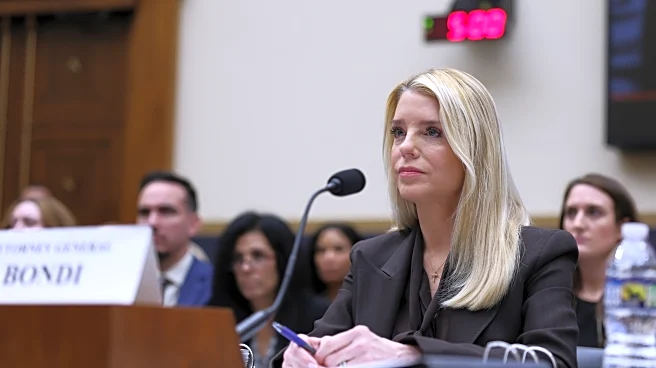Rapid Read • 8 min read
A recent report by the World Health Organization's Commission on Social Connection reveals that teenagers are experiencing higher rates of loneliness compared to other age groups. The report indicates that 20.9% of individuals aged 13 to 17 report feeling lonely, a significant increase since the COVID-19 pandemic. The study suggests that social media usage is a contributing factor, as it can lead to mental health issues such as depression and anxiety. The report also highlights that teenagers are spending less time in face-to-face interactions, which is essential for healthy social development. Alana Officer, a WHO official involved in the report, emphasizes the serious impacts of loneliness on both physical and mental health, including reduced life expectancy.
AD
The increase in loneliness among teenagers has significant implications for their mental health and academic performance. According to the report, teenagers who feel lonely are 22% more likely to receive lower grades in school. This trend could affect educational outcomes and future opportunities for this age group. Additionally, the reliance on social media for social interactions may exacerbate feelings of isolation and contribute to unhealthy social comparisons and cyberbullying. Addressing this issue is crucial for educators, policymakers, and parents to ensure the well-being of young people and to foster environments that promote healthy social connections.
Schools and educators may need to reassess the role of digital technologies in educational settings. Implementing policies that limit smartphone usage during school hours could be considered to encourage more face-to-face interactions among students. Further research is needed to understand the long-term effects of social media on youth mental health and to develop strategies that mitigate its negative impacts. Families and educators are encouraged to evaluate the benefits and harms of digital technologies and to prioritize tools that enhance educational processes and social development.
The report suggests that while social media can have negative effects, it also offers potential benefits by strengthening existing relationships and providing support for children with disabilities. It can help remove geographical barriers and expand social networks, offering a sense of belonging and community. However, the challenge remains in balancing these benefits with the risks associated with excessive use and the impact on real-world interactions.
AD
More Stories You Might Enjoy












